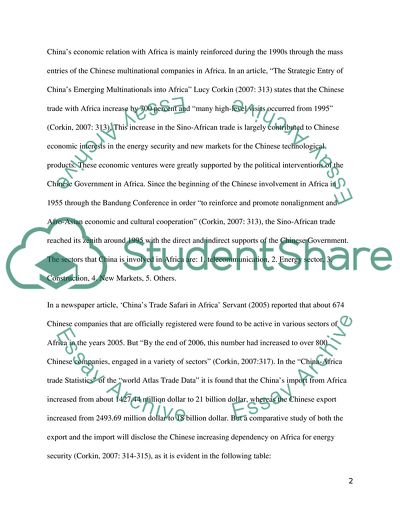Cite this document
(“Chinas Involvement in Africa Admission/Application Essay”, n.d.)
Chinas Involvement in Africa Admission/Application Essay. Retrieved from https://studentshare.org/politics/1728493-china-and-africa-chinas-involvement-in-africa-implications-goals-and-criticisms
Chinas Involvement in Africa Admission/Application Essay. Retrieved from https://studentshare.org/politics/1728493-china-and-africa-chinas-involvement-in-africa-implications-goals-and-criticisms
(Chinas Involvement in Africa Admission/Application Essay)
Chinas Involvement in Africa Admission/Application Essay. https://studentshare.org/politics/1728493-china-and-africa-chinas-involvement-in-africa-implications-goals-and-criticisms.
Chinas Involvement in Africa Admission/Application Essay. https://studentshare.org/politics/1728493-china-and-africa-chinas-involvement-in-africa-implications-goals-and-criticisms.
“Chinas Involvement in Africa Admission/Application Essay”, n.d. https://studentshare.org/politics/1728493-china-and-africa-chinas-involvement-in-africa-implications-goals-and-criticisms.


